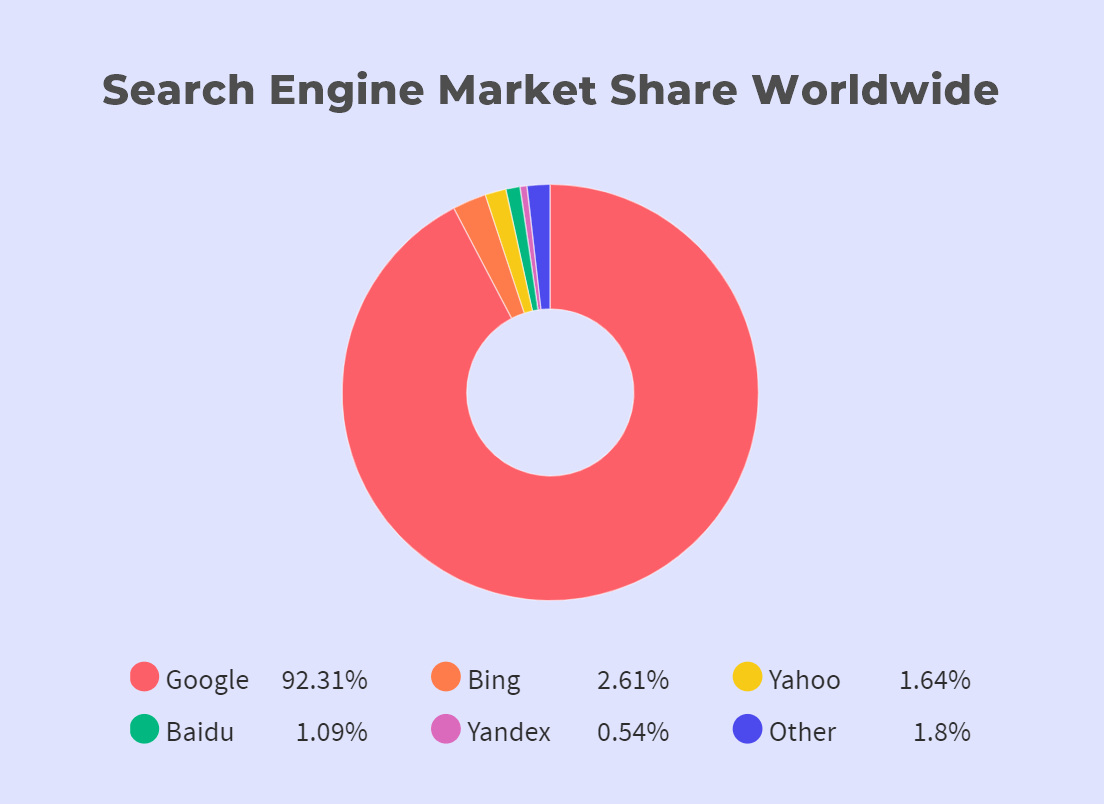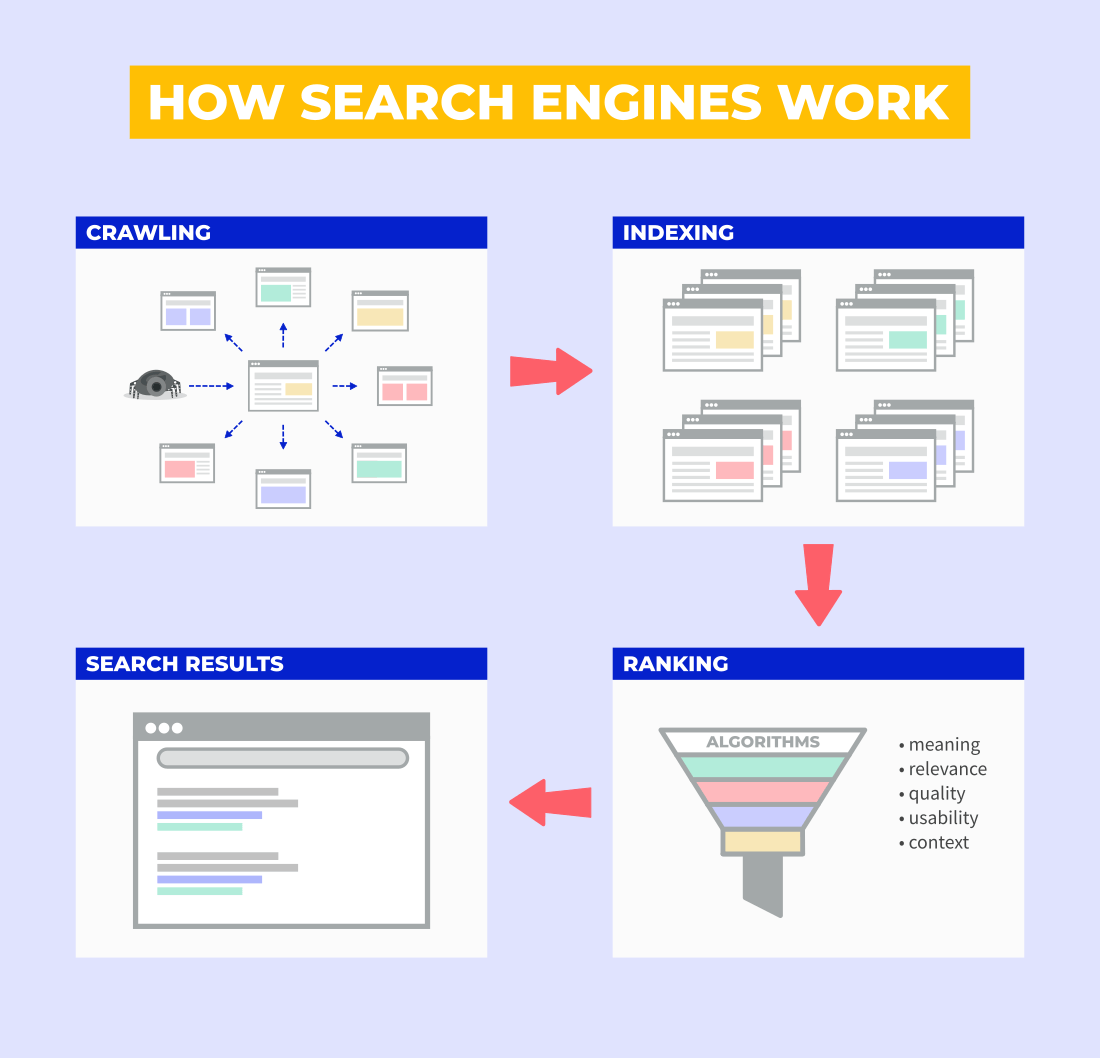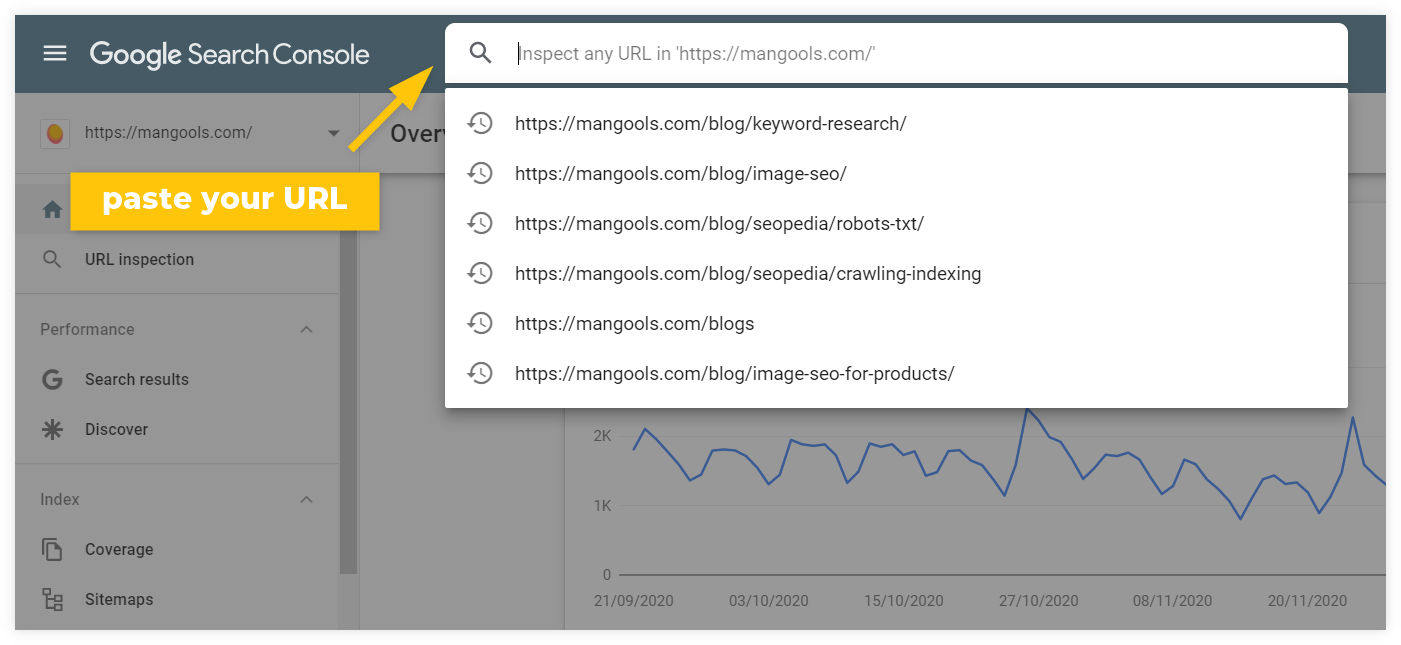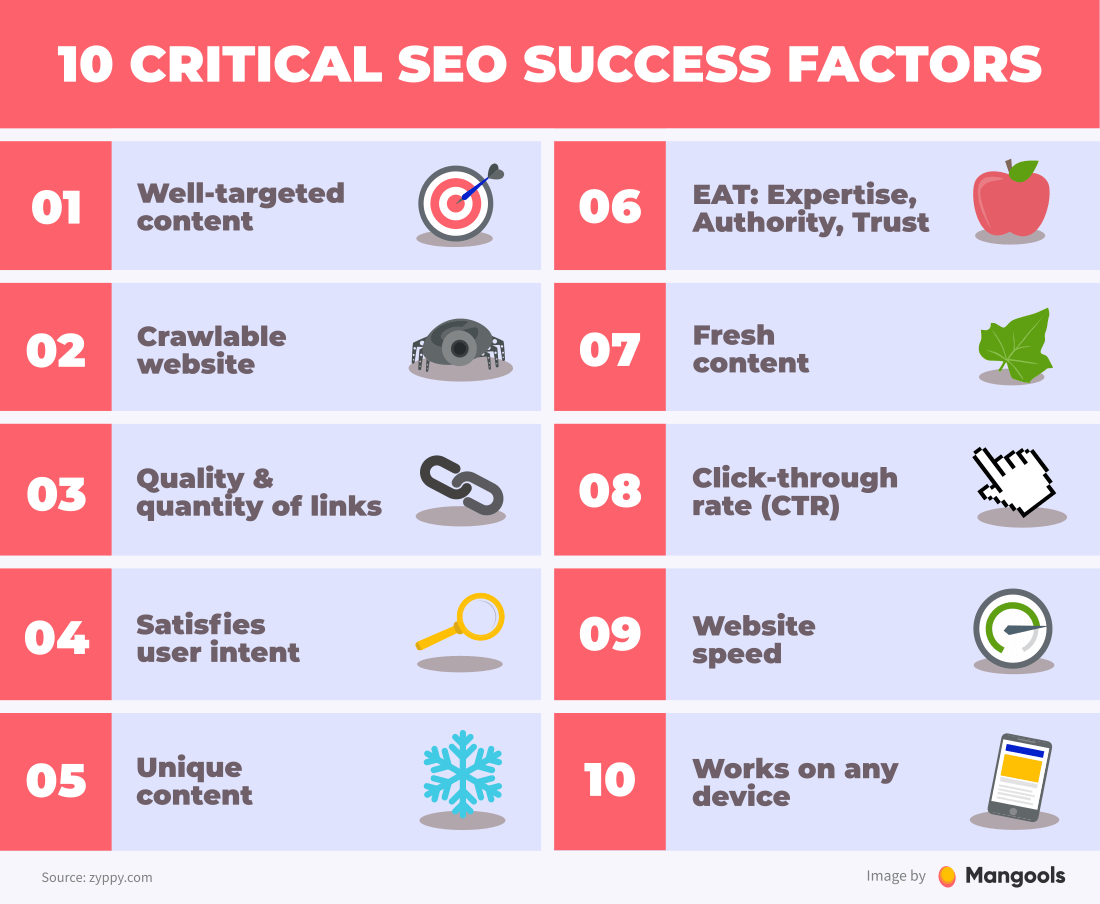Search engines
In the 2nd chapter of this SEO guide, you will learn what are search engines, how they work and what are the most important SEO ranking factors in Google. In this Blog we talk about All information about Search Engines and how to work search engine work and google algorithm and SERP ranking factors.
Chapter navigation
- What are search engines?
- How search engines work
- Google algorithm
- Ranking factors
What are search engines?
A search engine is an online tool that helps people find information on the internet. A typical example? Google.
And the truth is, Google is also probably the only example you need to know. Just look at the chart of the worldwide search engine market share (data by Statcounter):

So when we talk about search engines in this guide, we mostly mean Google. Other search engines work on similar principles and as long as your website is optimized for Google, you should be all set up for others too. Note: In this Blog we talk about All information about Search Engines and how to work search engine work and google algorithm and SERP ranking factors.
How search engines work
The process in which search engines work consists of these main steps:
- Crawling
- Indexing
- Picking the results
…and finally, showing the search results to the user.
The process looks something like this:

Crawling
Crawling is the process in which search engines scan all the internet webpages continuously.
They use small pieces of programs (called crawlers or bots) to follow all the hyperlinks and discover new pages (as well as updates to the pages they discovered before).
Martin Splitt, Google Webmaster Trend Analyst, describes the crawling process quite simply:
“We start somewhere with some URLs, and then basically follow links from thereon. So we are basically crawling our way through the internet (one) page by page, more or less.”
Indexing
Once the website is crawled, the information is indexed. The search engines try to analyze and understand the pages, categorize them, and store them in the index.
The search engine index is basically a gigantic library of all the crawled websites with a single purpose – to understand them and have them available to be used as a search result.
Tip: If you want to find out whether your page was crawled and indexed, you can simply go to your Google Search Console (more on the tool in the last chapter) and use the URL Inspection Tool:

You’ll see when the page was last crawled as well as warnings about any potential crawling and indexing issues Google may have with your page.
Read more in our detailed post on Crawling & Indexing.
Picking the results
Once the internet user submits a search query, the search engine digs into the index and pulls out the best results. The list of the results is known as a SERP (Search Engines Results Page).
In the following paragraphs, we’ll take a closer look at Google’s Search Algorithm.
Google algorithm
Google’s Search Algorithm is used as an umbrella term to refer to all the individual algorithms, machine learning systems and technologies Google uses to rank websites.
To provide the best results, they consider various factors, namely:
- Meaning of the query – the search engine needs to understand what exactly is the user searching for
- The relevance of pages – the page must be relevant to the search query
- Quality of content – the search engine tries to pick the best results in terms of quality of content
- Usability of pages – the pages should also be usable (in terms of accessibility, readability, safety, etc.)
- Context and settings – last but not least, the user’s location, settings, and history of searches are considered
As with any other complex system, the Google algorithm needs to be updated and tweaked regularly.
Besides minor algorithm updates that happen on a daily basis, Google usually rolls a couple of core algorithm updates per year.
They are officially announced by Google and create a lot of buzz in the SEO community.
Going through a list of the most important core algorithm updates (e.g. Panda, Penguin, Hummingbird,…) can be a great way to get a quick overview of how Google Search and SEO evolved over the years.
To learn more, read our detailed post on the Google algorithm.
Search Quality Raters
Besides the algorithms, Google also uses human data input.
There are thousands of external Google employees called Search Quality Raters who follow strict guidelines (available to the public), evaluate actual search results and rate the quality of the ranked pages.
A typical example of pages that undergo this kind of strict evaluation are the so-called YMYL (Your Money, Your Life) pages – pages dealing with important topics that can impact someone’s happiness, health, safety or financial wellbeing.
Quality Raters don’t influence the rankings directly, but their data is used to improve the search algorithm.
Ranking factors
Of course, search engines keep the exact calculations of their algorithms in secret. Nonetheless, many ranking factors are well-known.
Ranking factors are a very discussed topic in the world of SEO.
Many of them have been officially confirmed by Google but many remain in the realm of speculations and theories. From the practical point of view, it’s important to focus on factors that have a proven impact but also try to keep a “good score” across all the areas.
Of course, not everything people think is a ranking factor is actually used by search engines (if something correlates with the higher rankings, it is not necessarily something Google uses in their algorithm). On the other hand, some confirmed ranking factors only have a very small impact on the rankings. In this Blog we talk about All information about Search Engines and how to work search engine work and google algorithm and SERP ranking factors.
Cyrus Sheppard from Zyppy made a nice list of Google success factors (the ones that correlate with higher rankigs the most). Here are the 10 critical ones:

- Well-targeted content – you need to identify what people search for and create quality content tailored to their needs
- Crawlable website – this is a no brainer – if you want to rank, your website must be easy to find by search engines
- Quality and quantity of links – the more quality pages link to your website, the more authority you’ll have in the eyes of Google
- Content oriented at user intent – SEO is not only about what words you use, but also about the type of content and its comprehensiveness – make your visitor happy and Google will be happy too
- Unique content – be very careful about using duplicate content on your websites
- EEAT: Experience, Expertise, Authority, Trust – the E-E-A-T signals are evaluated by Google’s Quality Raters – never forget to build and prove your expertise and trustworthiness and write only about topics you are qualified for
- Fresh content – some topics require more freshness than the others, but nonetheless, you should regularly update your content to keep it up to date
- Click-through rate – optimize your title tags and meta descriptions to improve the CTR of your pages
- Website speed – make sure your visitors don’t have to wait too long to load the page, otherwise, there’s a high chance they’ll leave before actually visiting it
- Works on any device – your website must work perfectly on any device and screen size (remember that the majority of internet users come through mobile devices!)
Other important factors that may have a positive impact on your rankings:
- Content depth
- Image optimization
- Topical authority
- A well-structured page
- Social sharing
- Use of HTTPS
Conclusion
In this Blog we talk about All information about Search Engines and how to work search engine work and google algorithm and SERP ranking factors. Search engines play an indispensable role in our digital world, serving as gateways to a vast expanse of information. They’ve evolved significantly, employing complex algorithms to swiftly navigate the web and deliver tailored results to users. This technology has transformed how we access knowledge, connect with resources, and explore the online universe. However, with this power comes responsibility, as search engines must prioritize accuracy, relevance, and user privacy. As we continue advancing, the evolution of search engines will undoubtedly shape our digital experiences, fostering accessibility and knowledge sharing while adapting to the ever-changing landscape of the internet.
Sources: mangools




